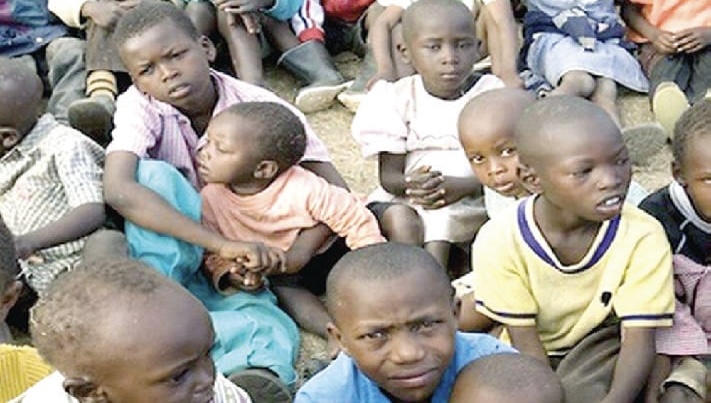News
Two in three Nigerian children live in poverty – UNICEF

Two out of every three Nigerian children live in multidimensional poverty, lacking basic necessities such as healthcare, quality education, clean water, adequate nutrition, and protection, according to the Nigerian Child 2025 Report.
The report, launched on Thursday in Abuja by UNICEF to commemorate World Children’s Day 2025, highlights the harsh realities confronting children and the progress achieved in several areas nationwide.
UNICEF Nigeria representative Wafaa Saeed said the findings showed that millions of children remained trapped in conditions that limit their growth, development, and future potential, with many unable to access basic necessities.
“Two in every three children in Nigeria are living in multidimensional poverty,” Ms Saeed said, adding that 25 per cent of children aged five to 17 were engaged in child labour and one in three girls was married.
She noted that 2.2 million children remained unvaccinated, 40 per cent of under-fives were stunted due to chronic malnutrition, and 10.2 million children were still out of school, mostly in the North-East and North-West.
Ms Saeed added that one in four children in rural areas lacked access to safe drinking water, while 30 per cent of households still practised open defecation, highlighting sanitation and water access challenges.
Children in conflict-affected states face deeper vulnerability, she said, with more than 1.5 million internally displaced across Borno, Yobe, and Adamawa, further complicating access to education, nutrition, protection, and essential social services.
“In spite of challenges, the report highlights progress from government-led efforts and development partnerships, including expanded routine immunisation campaigns, increased school enrolment, and improved access to clean water for more than five million people,” she said.
Ms Saeed said the report demonstrated the urgency of action and the potential for change when stakeholders collaborated, emphasising that millions of children were already benefiting from vaccines, schooling, and social protection services.
“The report also shows that under-five deaths have dropped by 43 per cent since 1990, exclusive breastfeeding has risen from two per cent to 29 per cent, and vaccination coverage has tripled from 13 per cent to 39 per cent,” Ms Saeed said.
She emphasised that those gains demonstrated what could be achieved through collective responsibility and urged the government, partners, donors, the private sector, and communities to prioritise the well-being of Nigerian children nationwide.
“With nearly half of Nigeria’s population under 18, every investment in children is an investment in peace, productivity, and national progress.
“They are our responsibility, and they are our future,” Ms Saeed added.
World Children’s Day is celebrated worldwide to promote and protect children’s rights. It marks the adoption of the UN Convention on the Rights of the Child in 1989.
(NAN)
-

 Politics18 hours ago
Politics18 hours ago2027: Kukah, Dogara, Musa emerge frotrunners as pressure mounts on Tinubu to pick Christian VP
-

 Sports17 hours ago
Sports17 hours agoFG hails Super Eagles’ fighting spirit, says Nigeria proud despite defeat
-

 Politics17 hours ago
Politics17 hours agoKwankwaso gives condition to rejoin APC
-

 Sports18 hours ago
Sports18 hours ago2025 AFCON: Eagles crash out on penalties to Morocco
-

 News18 hours ago
News18 hours agoUS visa shockwave: Trump order may delay 5,000 intending Nigerian immigrants
-

 News18 hours ago
News18 hours agoGenocide Claim: Pushback Over FG’s N12.8bn US Lobby Deal
-

 Sports18 hours ago
Sports18 hours agoDespite 4-2 Loss To Morocco, Abdul Samad Rabiu Gifts Super Eagles $500,000
-

 News17 hours ago
News17 hours agoNJC okays Justice Oyewole’s elevation to S’Court, appointment of 35 judges


















